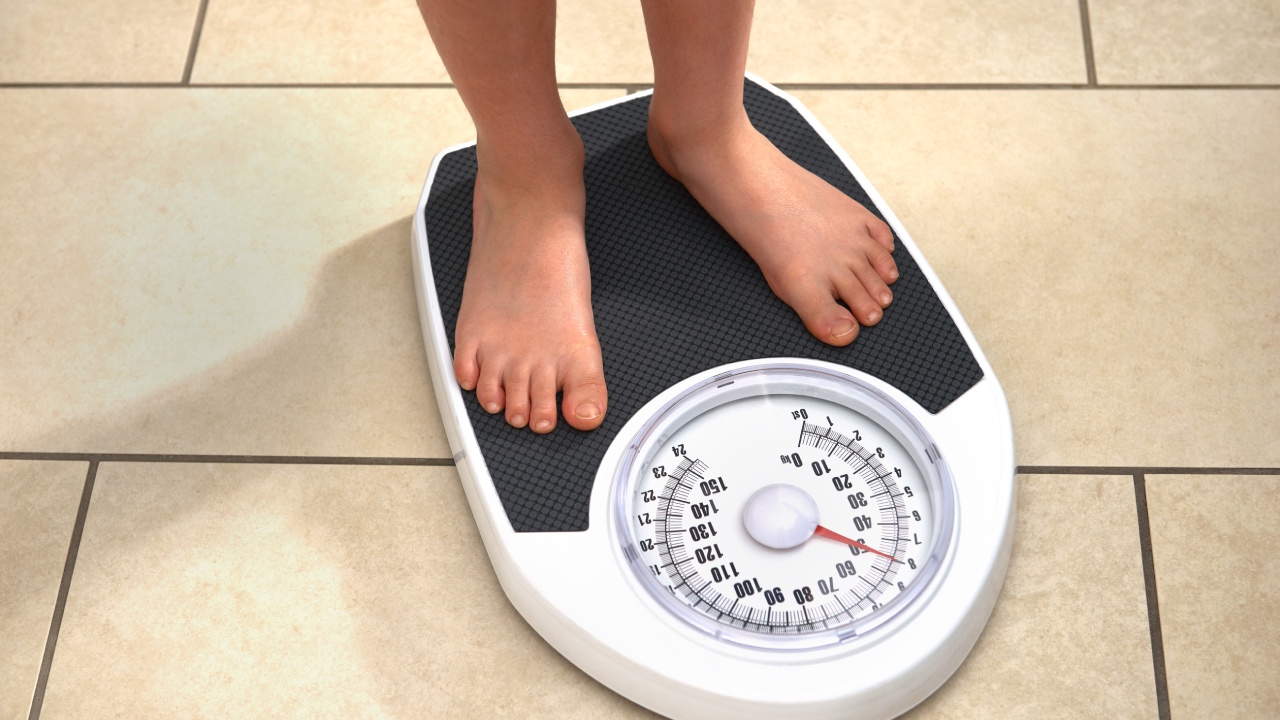Weight loss: why you don’t just lose fat when you’re on a diet

Adam Collins, University of Surrey
When you go on a diet, you don’t just lose fat – you lose muscle too. This can have many repercussions – not only on your fitness and strength, but on your metabolism.
To lose weight (body fat), you need to be in a calorie deficit. This means consuming fewer calories than your body uses, or exercising to burn more calories than you consume.
During the first few days in a calorie deficit, the body uses up its small reservoir of glycogen stores for energy. Glycogen is a string of glucose (sugar) that comes from the carbohydrates you eat. Since carbs are the body’s main energy source, this is why any glucose the body doesn’t immediately use is stored to use for energy later.
But as carbohydrate molecules bind with water, this means that when the body stores glycogen, it also stores water in the muscles. As these glycogen stores are used up, the body also releases a significant amount of water. This is often called “water weight”, and explains why some may feel they lose considerable weight early in their diet.
Given you only have days’ worth of glycogen stores, this is why the body uses fat to store extra calories for when you need it. Once the glycogen stores are used up, the body shifts to metabolising fat to get the energy it needs to function.
But not all tissues can use fat for energy – such as the brain. This is why the body needs to metabolise your muscles when you’re in a calorie deficit.
Protein (from the food you eat) is stored in your muscles. The body can convert this stored protein into glucose for energy. But this means you subsequently lose the muscle tissue itself when that happens. This has significant consequences – including slowing the metabolism, which may ultimately drive weight regain after losing weight.
Muscle loss
Many factors can affect how much muscle you lose while in a calorie deficit.
While it was once thought that the more fat you had, the less muscle you lost in a calorie deficit, this has since been disproved – with both lean and obese people losing significant rates of muscle when dieting.
Ethnicity and genetics may, however, play a role – with studies showing black people tend to lose more muscle mass in a calorie deficit than white people do. Some research also suggests that genetic variants may make some people more susceptible to certain dietary changes, which may determine how much muscle mass they end up losing.
Muscle loss will also happen regardless of whether you lose weight gradually or quickly. A better determinant of how much muscle you’ll lose depends on how much weight you end up losing. If a person loses 10% of their body weight, typically around 20% of this is fat-free mass (the proportion of body mass that isn’t fat – such as muscle). This can equate to several kilograms of muscle.
Many people also think that what you eat while losing weight may determine how much muscle you lose, with it commonly believed that if you eat plenty of protein you’re less likely to lose muscle mass. This is debatable, with research showing people lose as much muscle on high-protein weight loss diets as people who followed other types of diets.
Low-carb diets have also been claimed to promote more fat loss. But studies comparing different types of diets have found that low-fat high-carb diets seem to offer the same, if not better, fat loss than low-carb, high-fat diets – with no differences in muscle loss.
Protein and exercise
Given all that has been said, the only way to prevent muscle loss somewhat while losing weight is to combine exercise (particularly resistance exercise and endurance exercise) with a diet higher in protein. This is because exercise stimulates muscle growth – but this process can only happen if you have an adequate supply of protein.
It’s suggested adults normally aim to consume 0.8g of protein per kilogram of body weight per day to maintain muscle mass. But given the extra demand exercise places on the muscles, a person will probably need to consume 1.2-1.5g of protein per kilogram of body weight to preserve muscle during weight loss. People who exercise a lot may need to increase that to more than 2g per kilogram of body weight when losing weight. Older people may also need to consume more protein than average.
Just be wary of consuming too much protein (more than 2.5g per kilogram of body weight) as eating more than your body uses could have an adverse effect on your metabolism by potentially making the body less able to draw upon glucose for energy. It may also put greater pressure on the kidneys and liver – which could lead to serious health issues, such as liver and kidney damage.
Even if you prevent muscle loss when losing weight, other metabolic changes still happen that promote weight regain – such as changes in your metabolic rate (the minimum amount of calories your body needs to survive) and increases in appetite and hunger. This is why, when trying to lose weight, the most important thing to consider is how sustainable your diet and lifestyle changes are. The easier these are to maintain, the better chances you have of keeping the weight off.
Adam Collins, Principal Teaching Fellow, Nutrition, University of Surrey
Image credits: Getty Images
This article is republished from The Conversation under a Creative Commons license. Read the original article.
